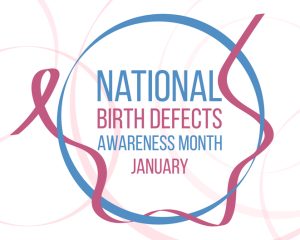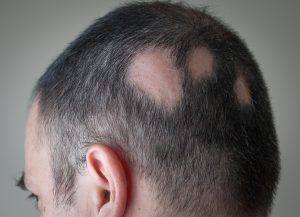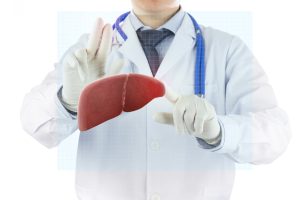The month of January has been recognized by the Centers for Disease Control and Prevention as National Birth Defects Month. The reason for this designation is to raise awareness about birth defects as it is estimated to affect 1 in every 33 births every year in the United States.
A birth defect is defined as a structural change that can affect almost any part of the body. The defect can be structural or functional or both in nature and can vary in severity from mild to severe. Some birth defects can be detected before birth while some may not be seen until the baby is born.
Some of the known causes of birth defects include:
- Smoking during pregnancy
- Being an older mother
- Consuming alcohol during pregnancy
- Taking certain medications during pregnancy
- Having certain infections during pregnancy
- Having uncontrolled diabetes during pregnancy
There are no guarantees that birth defects can be prevented, however it is recommended to have regular prenatal medical check-ups, always consult with a physician before taking any medications during pregnancy, avoid situations that can cause the body to overheat such as hot tubs, saunas, or other environments where the temperature can be excessively hot, and avoid smoking and alcoholic drinks.
It is important to speak with a physician if you are thinking of becoming pregnant or already know that you are pregnant to make sure that you are receiving the proper prenatal care. If you would like to schedule an appointment with a physician at Flushing Hospital Medical Center, please call 718-670-5486.
All content of this newsletter is intended for general information purposes only and is not intended or implied to be a substitute for professional medical advice, diagnosis or treatment. Please consult a medical professional before adopting any of the suggestions on this page. You must never disregard professional medical advice or delay seeking medical treatment based upon any content of this newsletter. PROMPTLY CONSULT YOUR PHYSICIAN OR CALL 911 IF YOU BELIEVE YOU HAVE A MEDICAL EMERGENCY.










